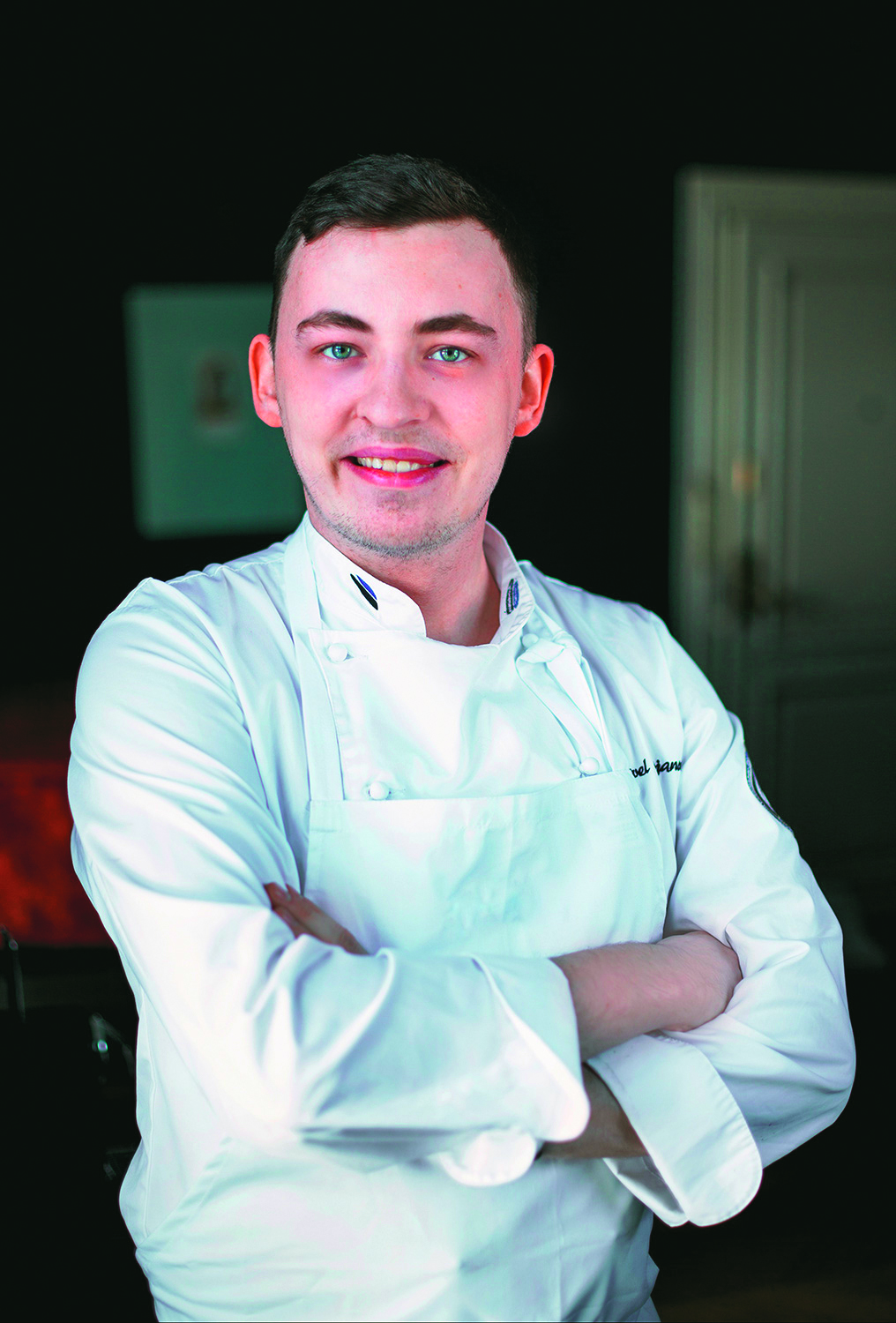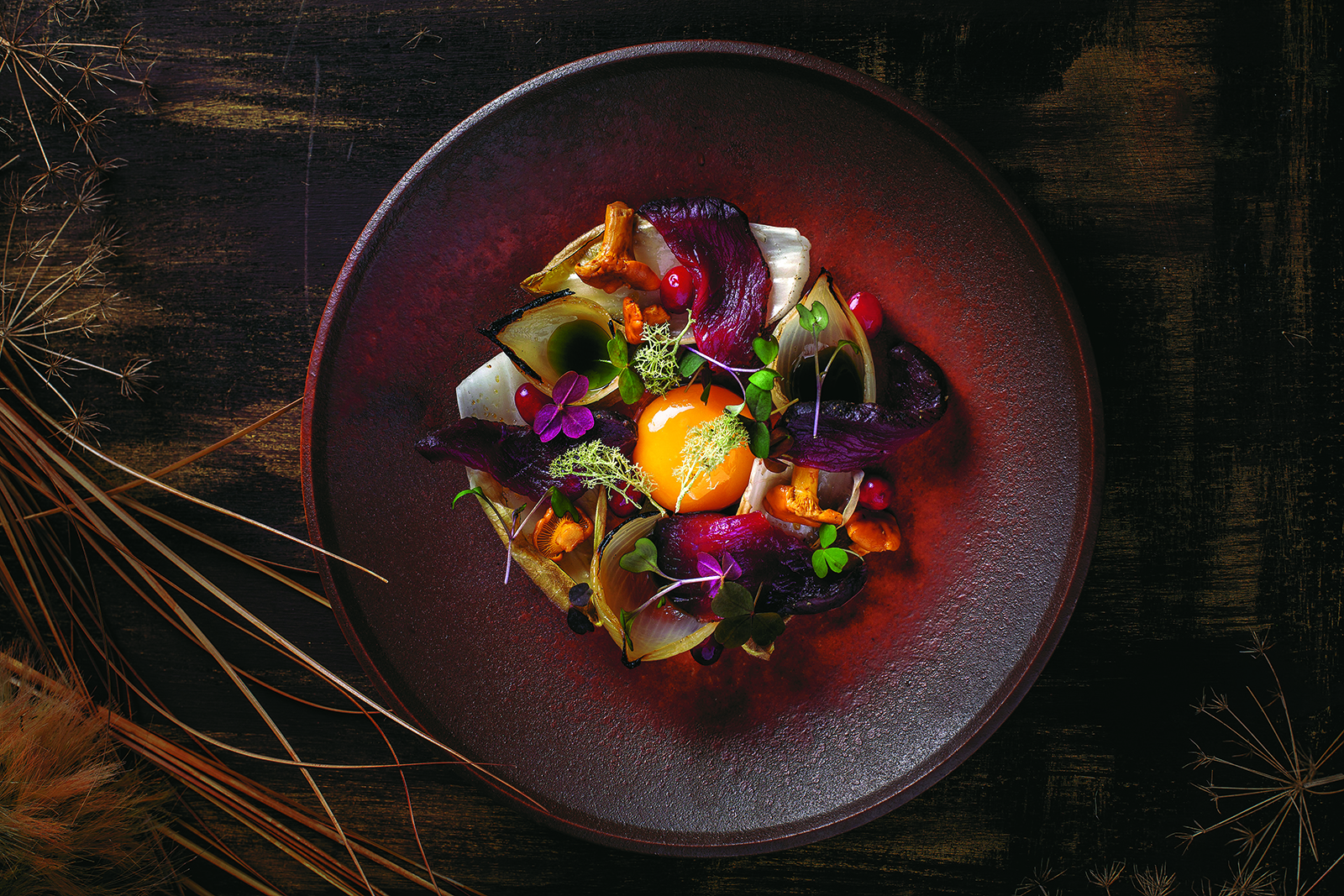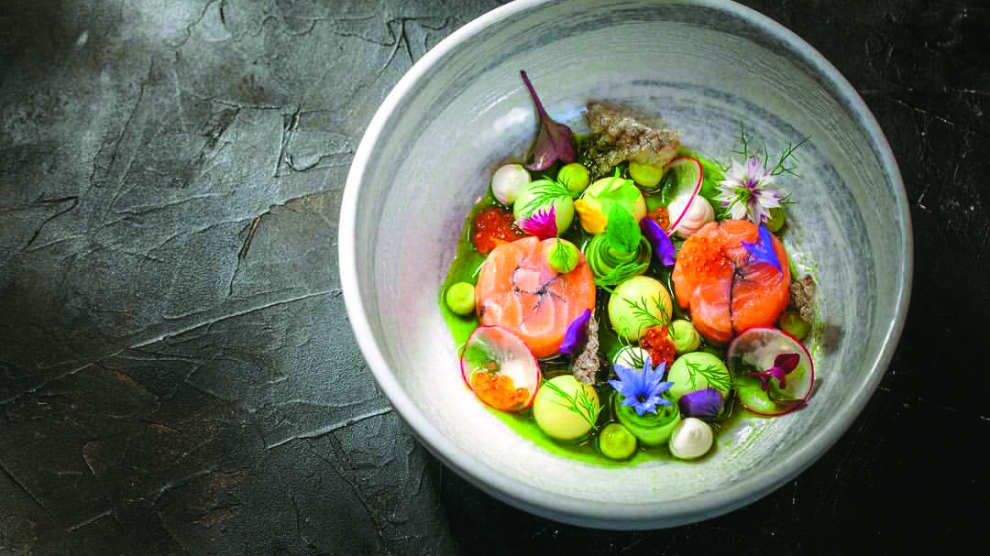Tallinn has been on the radar of weekend break travellers for more than two decades. The city’s picture postcard Old Town is one of the most immaculate in Europe, packed with medieval buildings and delightful both in winter, when snow frames every view, and in summer, when the long, northern white nights keep people on the streets until way past midnight.
For all its charms however, few people used to claim that one of Tallinn’s main attractions was its amazing food. That has changed over the past few years, as a number of high quality restaurants have opened their doors, serving inventive food made using fresh, local ingredients from sustainable supply chains. Pavel Gurjanov has been one of the key people who has made Tallinn’s transition from foodie hell to foodie heaven possible, at the restaurants Bordoo and DOM.
“The changes we have witnessed over the past 10 years have been enormous,” he says. “People have become much more educated about food, and about the importance of local produce. They realise how much better it is when we use Estonian apples, for example, as opposed to apples imported from Poland. People are interested in locally-sourced food now, especially fish and game.”
Gurjanov’s own connection to local produce goes back to his childhood. “Every summer would be spent in the village where my grandparents live,” he says. “There was a garden all around the house and they would grow as much of their own food as possible.” Even today Gurjanov still has a passion for foraging for flavour. “Each autumn I take my chefs to the forest, to pick berries and mushrooms.”

His love for cooking only came after he began to work in a restaurant. “Most chefs start training at 16,” he says. “I was 21 when I got my first job at the Hotel Ülemiste, in the Ö restaurant. It was already the best restaurant in Estonia and the head chef Roman Zastserinsk and his team had begun to use different, expensive ingredients. I fell in love with cooking on the spot. To see 10 chefs in one kitchen preparing dishes such as halibut, pigeon or crab was quite something.”
After serving in the army (conscription remains compulsory in Estonia) Gurjanov had the opportunity to do an internship in Copenhagen, Denmark, ground zero of new Nordic cooking.
“It was in Copenhagen, at the Michelin-starred Kanalen restaurant that I really saw for the first time what Nordic cuisine was: fresh local produce. It was a revolution, and I decided there and then that is what I want to do.”
During the course of the following few years Gurjonov travelled to as many new destinations as possible to learn about food. The US, Germany, Sweden and Switzerland, where he lived and worked for a year. He returned to Estonia as a sous chef at Cru, still one of the country’s best restaurants, and for his work there he was named Estonia’s Chef of the Year in 2013. Then he was named as one of the 200 best young chefs in the world.
“I have been the head chef at Bordoo and DOM for two years now,” he says. “DOM is located on Town Hall Square in the Old Town.and has been in business for four years. It’s a wonderful place. DOM’s slogan is simple: Food Inspired by Local Nature. It’s not always easy, but we try to use only ingredients from the Baltic Sea. We have been nominated for awards, we must be doing something right.”

Bordoo is an older establishment, operating for 13 years now in the historic Three Sisters Hotel. “Bordoo is a small restaurant with just a few tables, and the prices are not what you might expect for a 5-star hotel. I like to call it ‘Fine dining for honest money.’”
This year Gurjanov’s career will take another step forward when he represents Estonia at the Bucose d’Or, perhaps the most prestigious cooking competition in the world, named for Paul Bucose, the father of nouvelle cuisine who sadly died in January at the age of 91. It was Bucose who moved the popular palette away from classic fare steeped in heavy sauces toward lighter dishes elevated by regional ingredients. An inspiration to entire generations of chefs, including Pavel Gurjanov.
“These competitions are important because they offer me the opportunity to show that Estonia is a culinary country,” he says. “This is something which is good for the development of restaurants, tourism and the economy of the country in general. Everything changes in Estonia, and I want to be the person who makes sure those changes are for the better.”






Add Comment